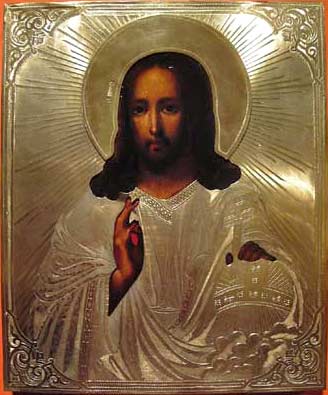|
 It should be apparent that words like 'cult' and 'heresy' are
applied to different targets by various adherents of 'orthodoxy.' Which
'orthodoxy'? In this Catholic author's mind, fundamentalists fit
snugly with the 'New Age;' they are all heretics, to him:
It should be apparent that words like 'cult' and 'heresy' are
applied to different targets by various adherents of 'orthodoxy.' Which
'orthodoxy'? In this Catholic author's mind, fundamentalists fit
snugly with the 'New Age;' they are all heretics, to him:
"It was a golden age if you wanted to talk about UFOs or
crystals, the Kama Sutra or the I Ching. It was a fertile period if
you said 'Christianity' but meant fundamentalism or Marxism or the
New Age, the gospel of the flower children or the gospel of health
and wealth." (Ross Douthat, Bad Religion: How We Became a Nation of
Heretics, Chapter Two, Kindle location 1218).
Needless to say, fundamentalists do not perceive that they belong
in this company. Isn't this the $64,000 question: What is orthodoxy?
Even the criteria by which to recognize it are themselves matters of
controversy. Roman Catholics do not admit the scriptures are a
self-sufficient, self-authenticating standard. That the Bible has convinced,
and continues to convince, millions of its own truth is a fact outside
their experience:
"The Book will prove itself if you will let it; there is
living power in it." (How to Study the Bible, Dwight L. Moody,
Kindle location 164).
To those who do uphold such Bible standard, however, it imposes a very strict discipline; it is by
no means true that scripture is vague, imprecise, or elastic. The fact that
many denominations, including the Catholics, look to other sources
for information introduces a 'wild card' into doctrine which cannot
be blamed on the Bible.
The reader may wonder why another 'apologetics' web-site is
needed; don't they abound? Isn't 'apologetics' pursued by many in
our modern day, very successfully, with great expertise? Certainly
there are geniuses at work, like Sam Shamoun. But personally, when I
heard the heretics disputing with the orthodox, I often felt the
heretics spoke better. The 'apologists' relied upon very weak
arguments from authority. Everything is made to depend upon certain
hermeneutic principles, rules for scriptural interpretation, taught
in evangelical seminaries, but neither self-evident, nor
self-authenticating, nor taught in the Bible: 'A text without a
context is a pretext,' etc. The heretics quite properly ignore these
rules, which were ignored also by the apostles, who routinely cite
cherry-picked, decontextualized verses. These principles arise from the
liberal belief that the Bible is a man-authored production,
which is at best a partial truth. So I give you, Dear Reader,
a web-site guaranteed to be free of the Argumentum ad Verecundiam.

|

